Store Location
Users will often ask or want to know the location of your store or business office closest to them. The Store Locator activity allows users to find a list of nearby locations conversationally using a location pin or typed address.
Store Location Flow
The store locator activity defines the following steps for the customers to have the nearby business information they are searching for.
- Ask for the user's location
- If successful, provide a list of locations
- If unsuccessful, allow the user to provide a different location or go back to the menu
Start by adding the Store Locator activity via the Add Activity button.
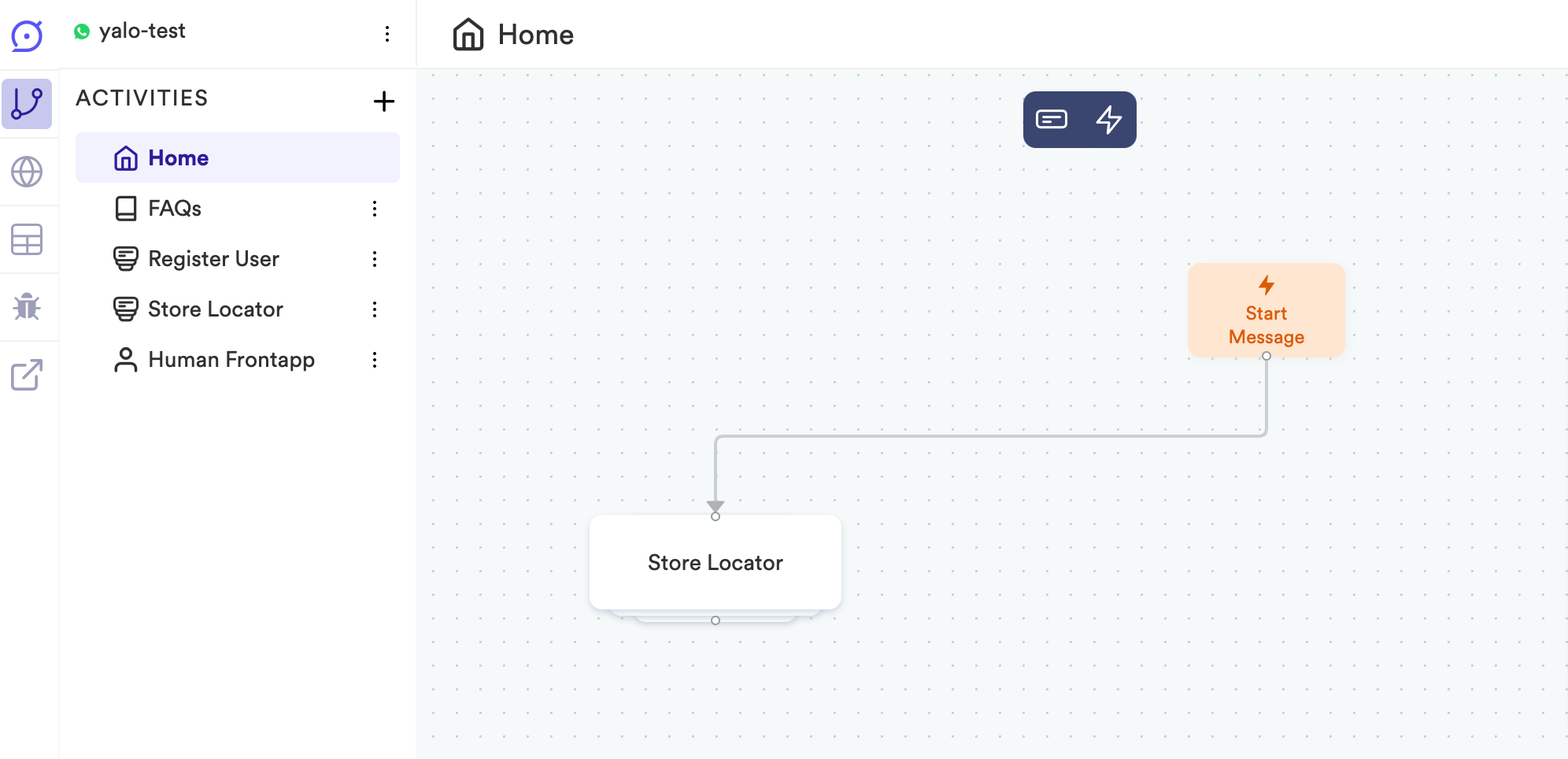
Flow Builder canvas
click to enlarge
Expanding the Store Locator activity will display the internal steps. To expand, scroll over the Store Locator activity and select Expand activity.
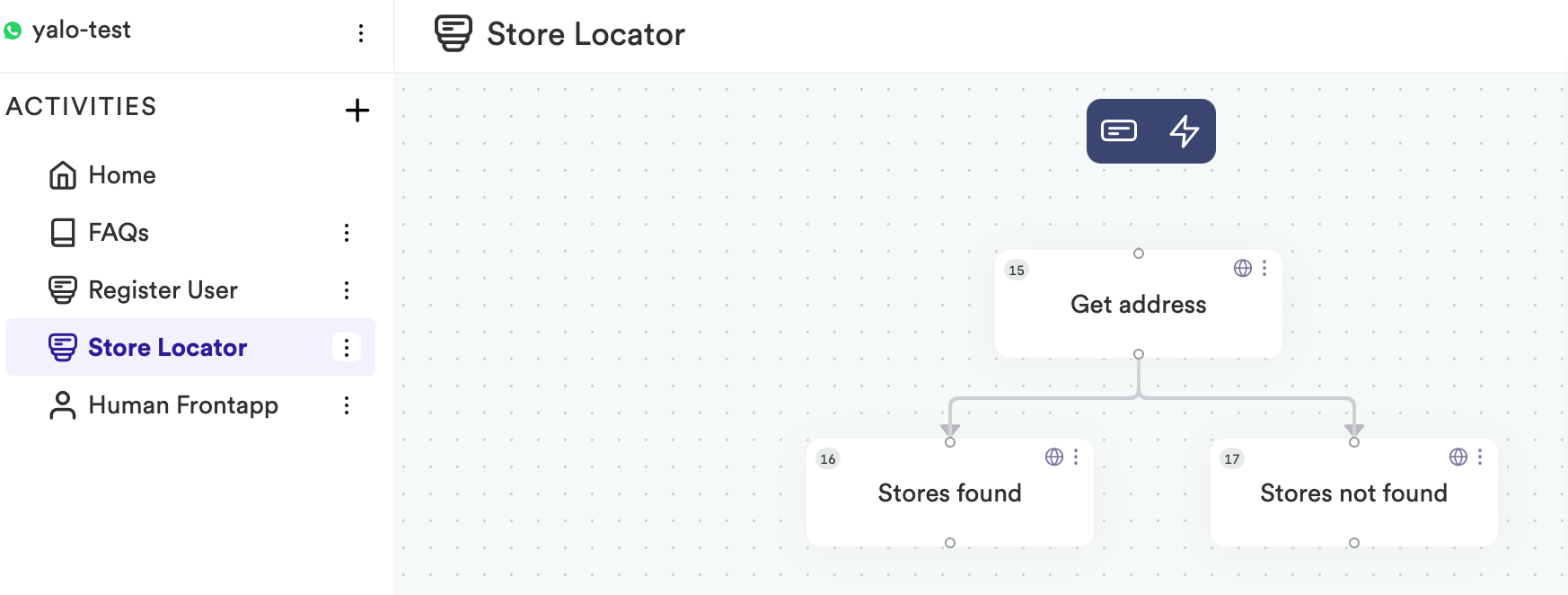
Flow Builder canvas
click to enlarge
The Store Locator activity defines three steps in order for the customers to have the nearby business information they are searching for.
- Get address.
- Stores found.
- Stores not found.
Implementation
Templates in Flow Builder are available from the Activities dropdown in the main navigation panel.
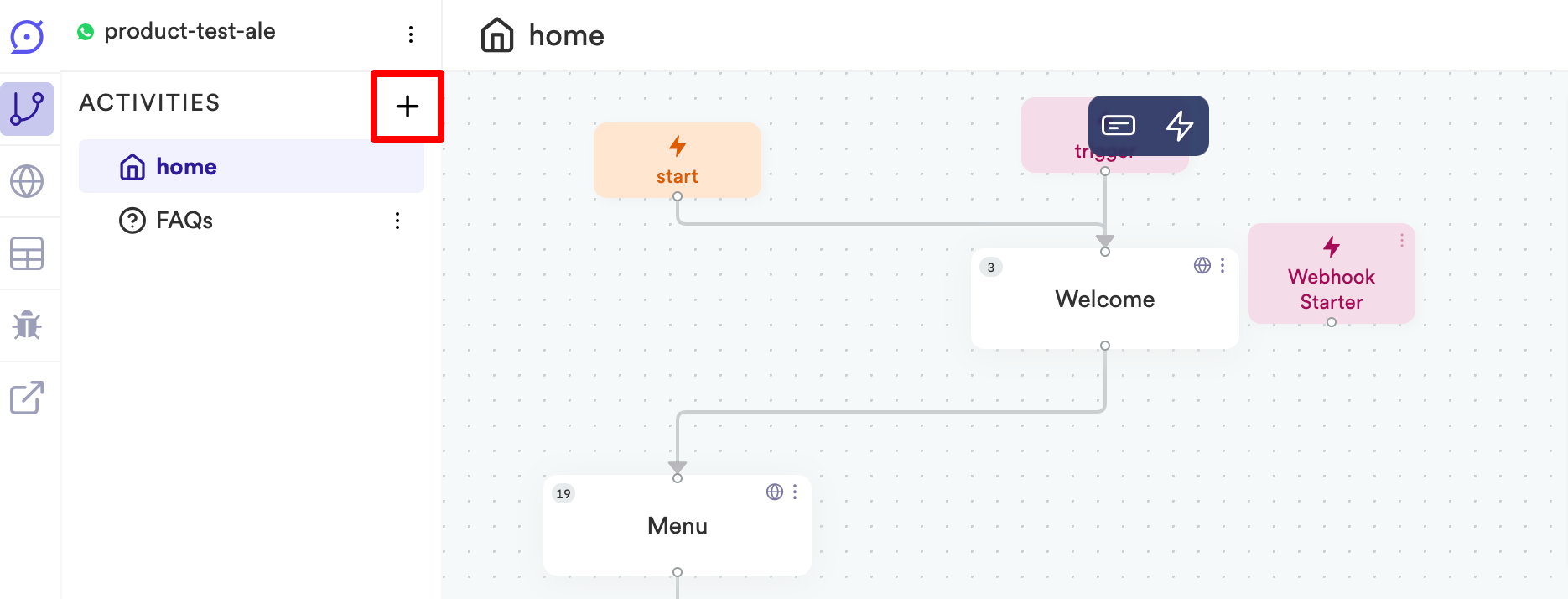
Flow Builder canvas
click to enlarge
Select the Store Locator template from the list of available templates to implement onto your workflow.
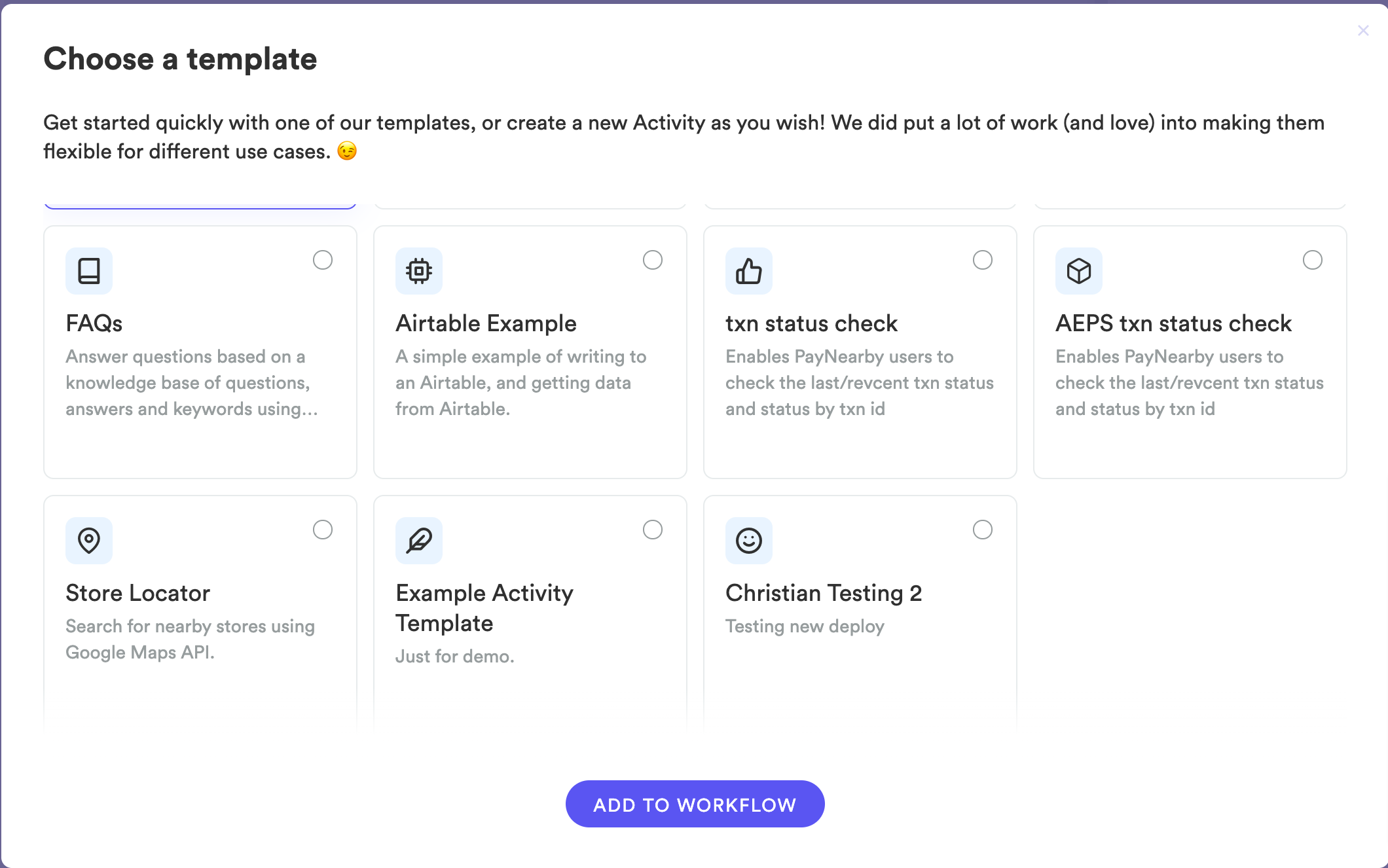
Flow Builder templates
click to enlarge
- Select Add to Flow to add.
The Store Locator template will be displayed in the Flow Builder Flow section:
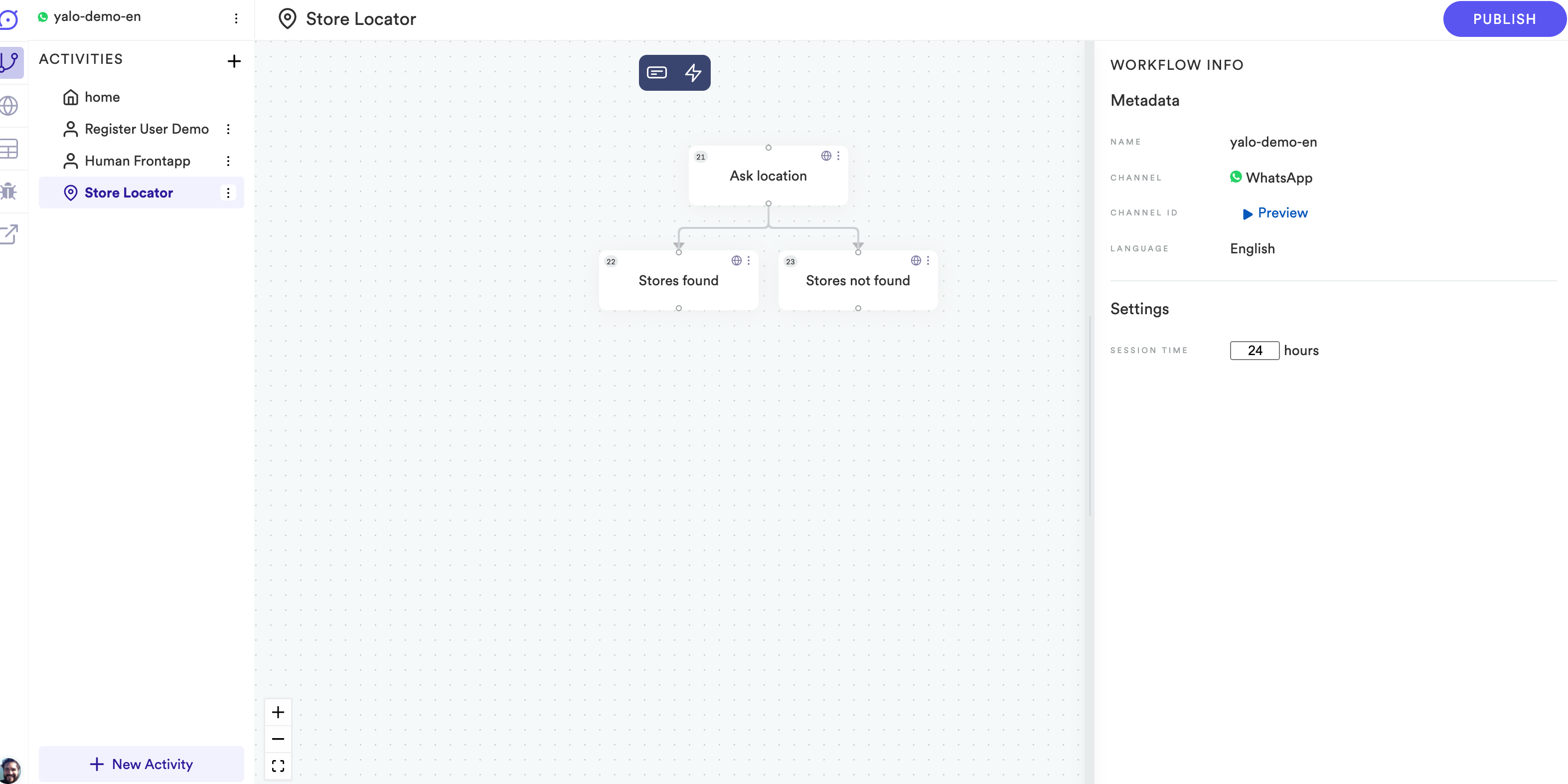
Flow Builder templates
click to enlarge
- Ask location.
All of the heavy lifting is done in this step. The Flow asks the user for their location via WhatsApp location pin or by entering an address as text. There is some code that needs to be configured here by opening the code view after selecting the Get address step.
userLocation = Context.get("userMessage") -- gets and stores address information provided by the user
locationResults = Location.stores("ENTER YOUR BUSINESS NAME HERE", 1500, 'GOOGLE BUSINESS TYPE', userLocation)
if locationResults.success == true then
Context.set("storesFound", locationResults.places) --save the result list in a context variable
Flow.branch(20) -- Do not change
else
Flow.branch(21) -- Do not change
There are two required variables to be set in this code block.
- Your business name, e.g. 'Yalo'
- Your business type as it is assigned for the Google Places API. Please see the Google Place Types documentation.
There is a third variable, seen above as 1500, which is the meters radius to search around the user's location.
-
Stores found
When the location search returns valid locations, a list of them is displayed to the user. You may want to update the text for the tone of voice, but changes to this activity step are not generally required. -
Store not found
When the location search fails, the user is given two primary options - to provide a new location or to go back to a menu. You may need to update the options, especially for the menu location.
When finished, save all changes by selecting the Publish button.
Requirements
- Customer can determine the number of stores shown and the max distance from the end-user.
- Customers must ensure their location info is up to date and accurate.
- Customer must provide data tags for “Place Type” to filter locations in Google Maps.
Updated about 2 years ago
